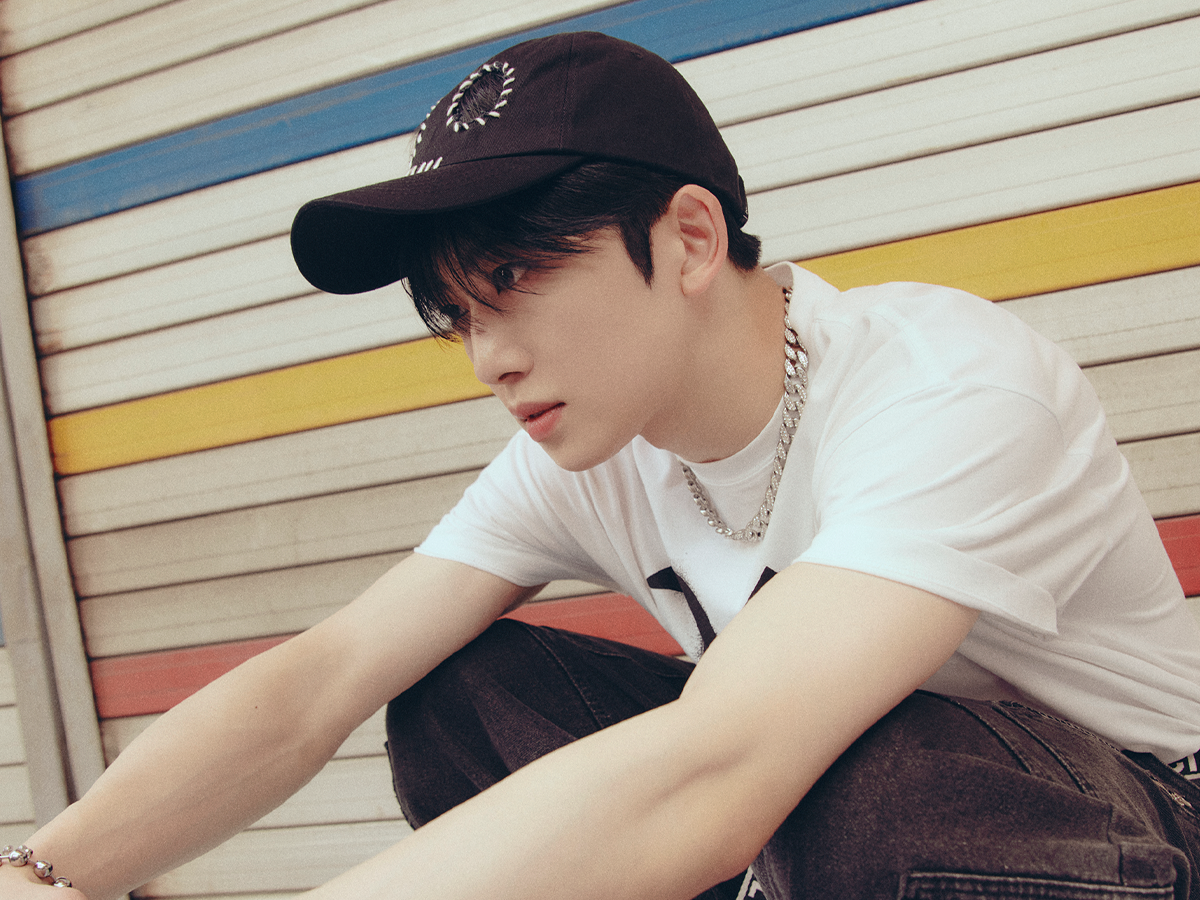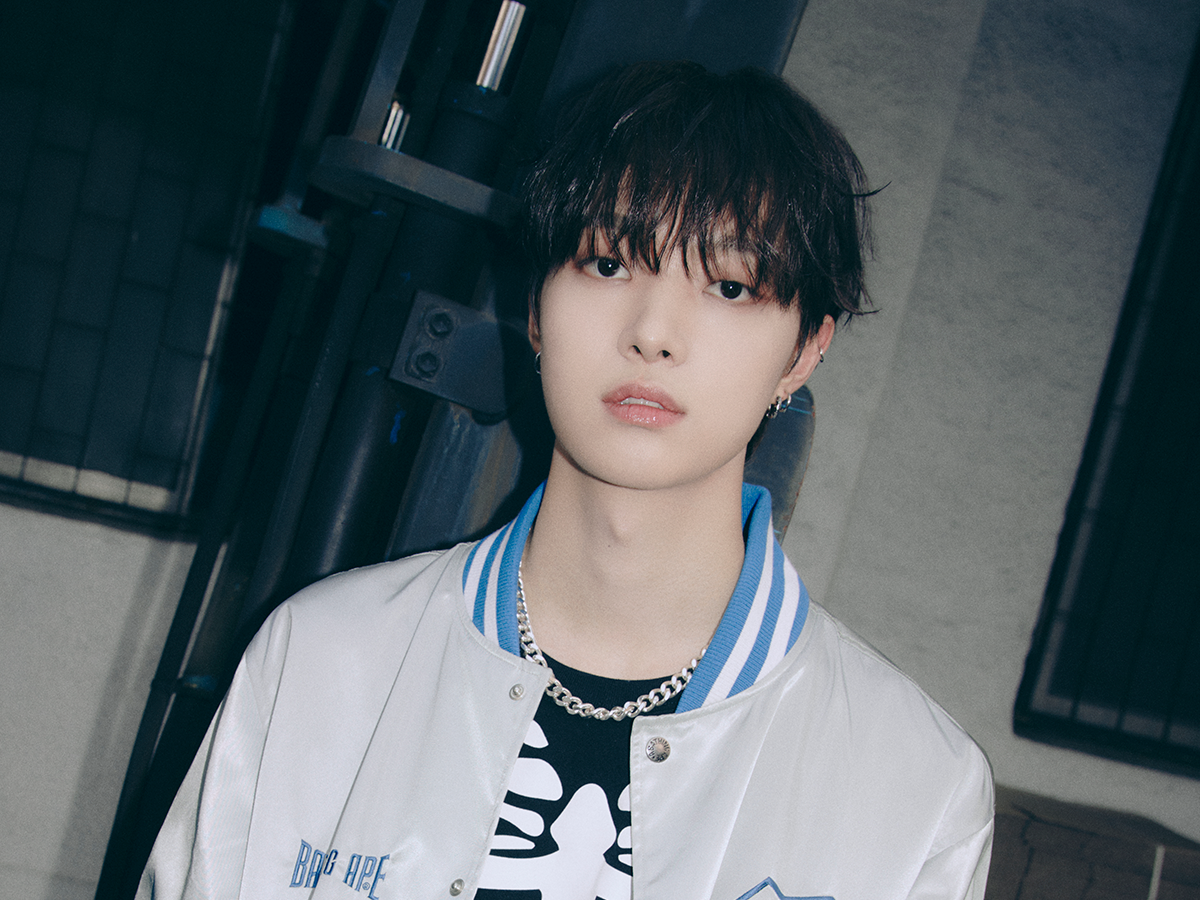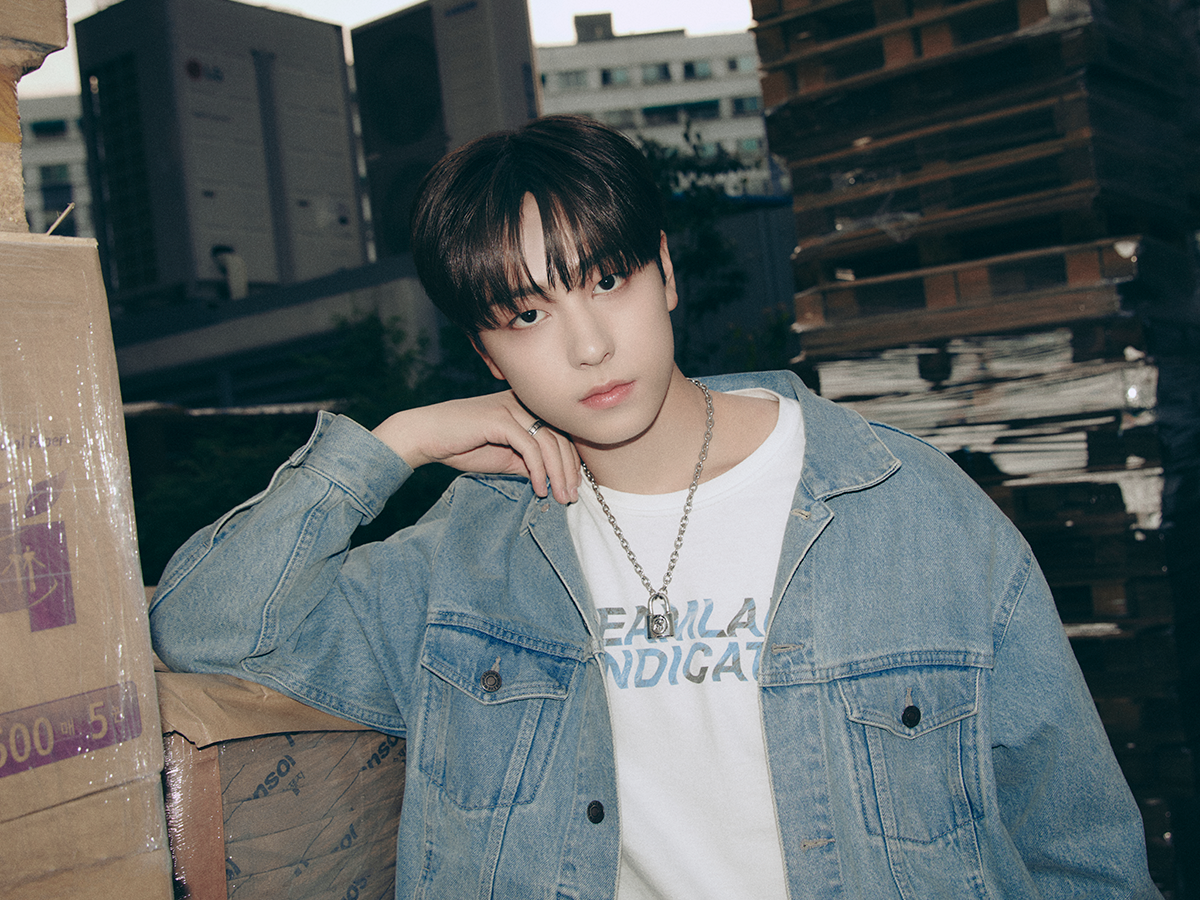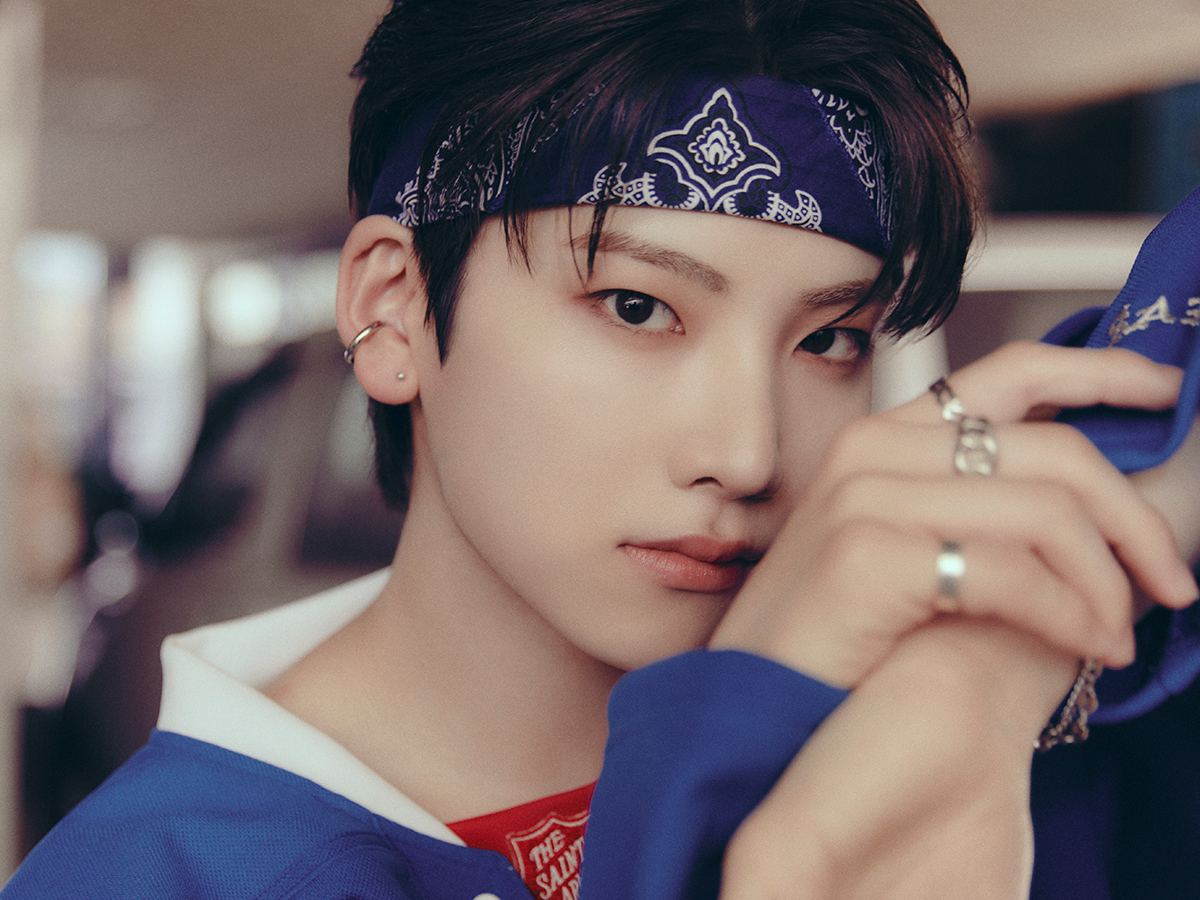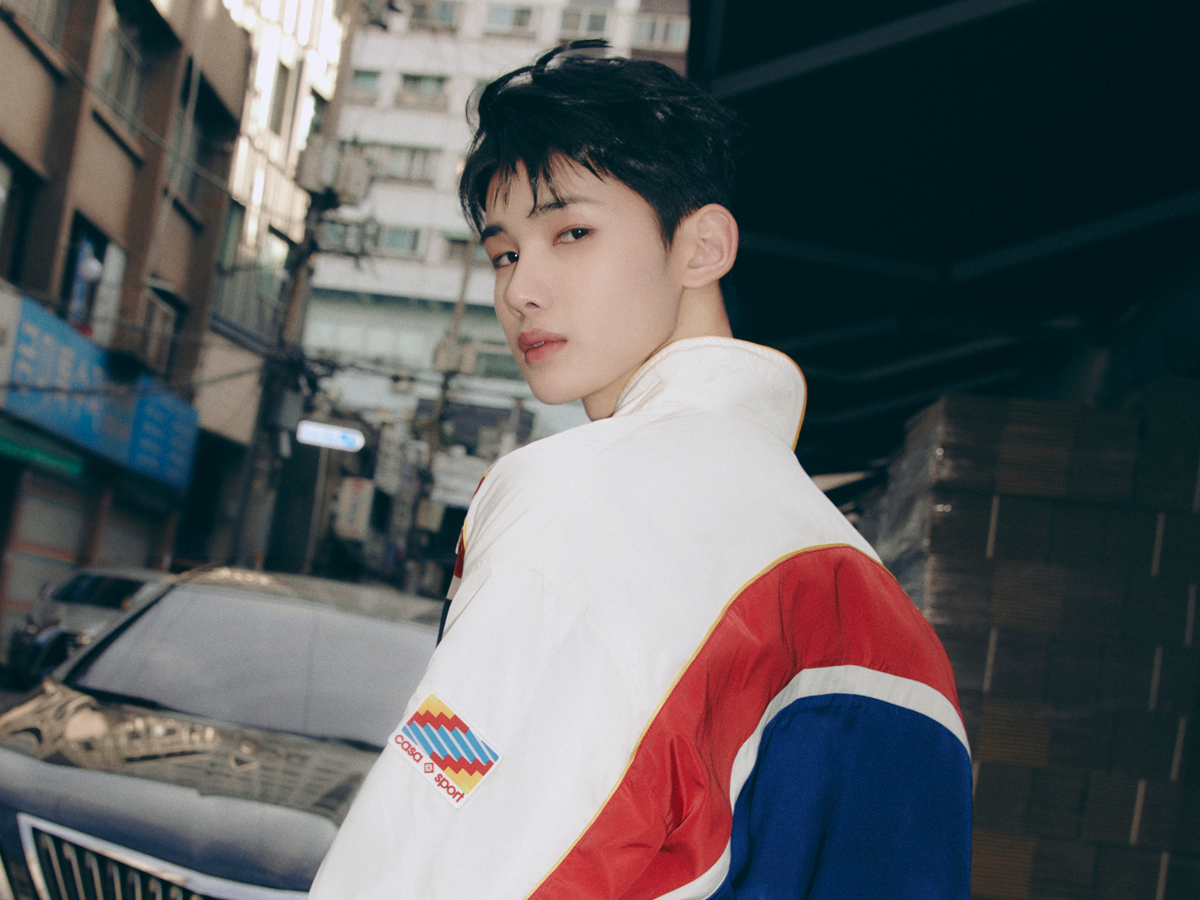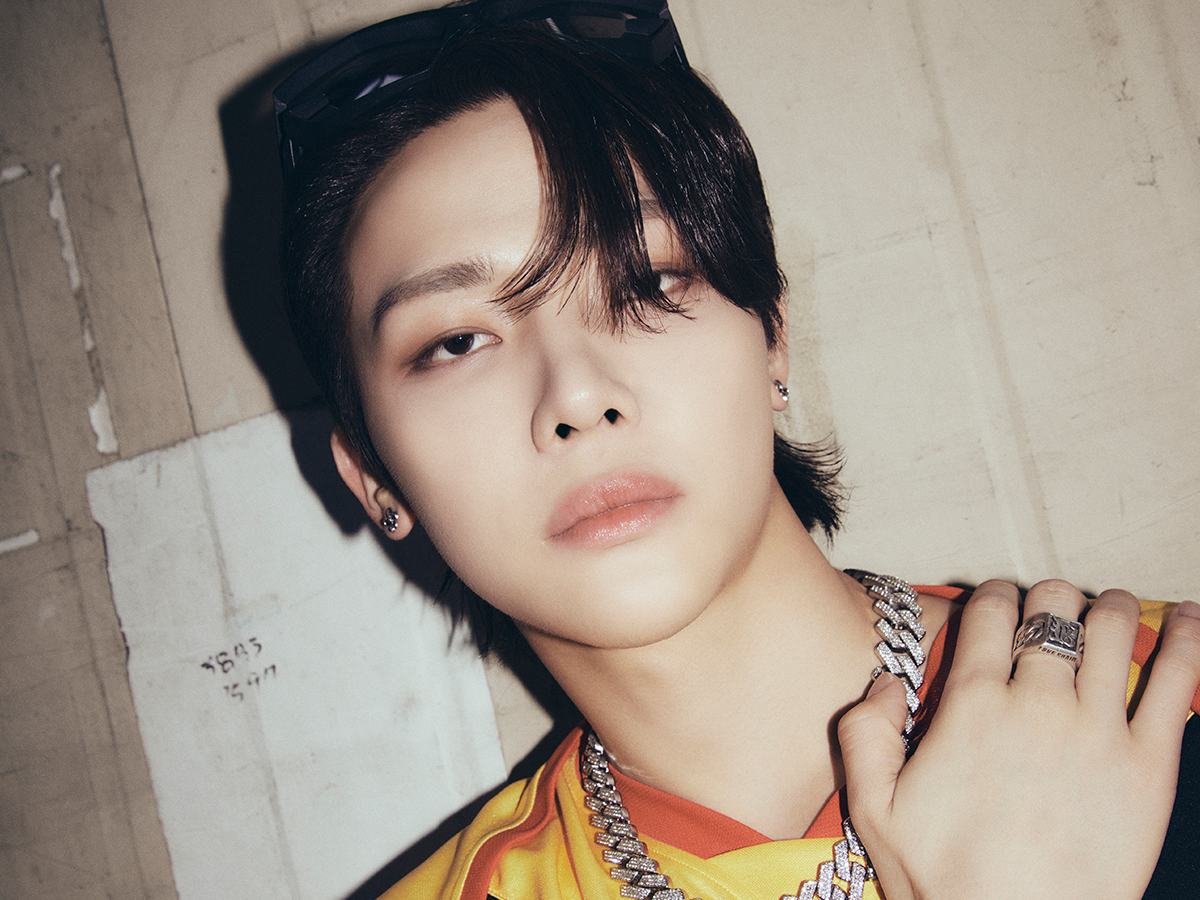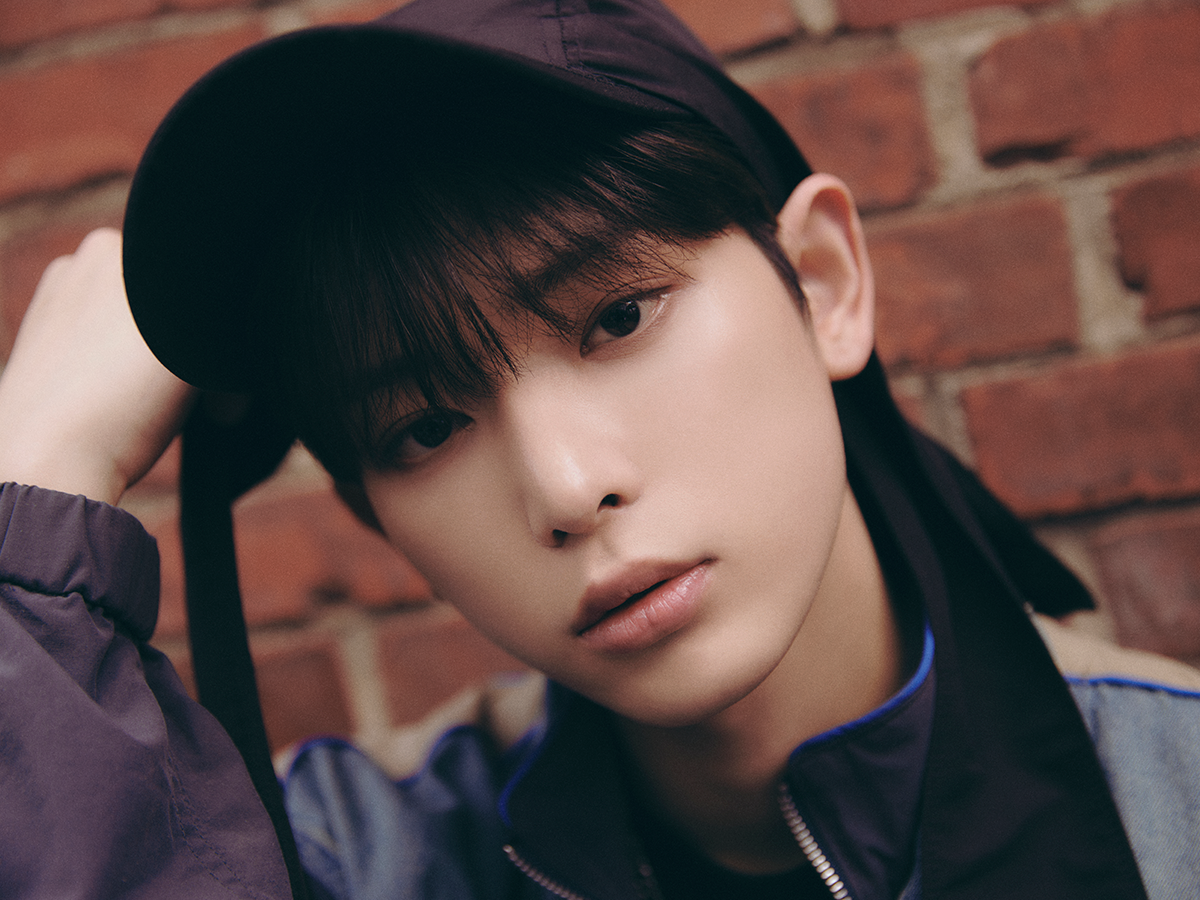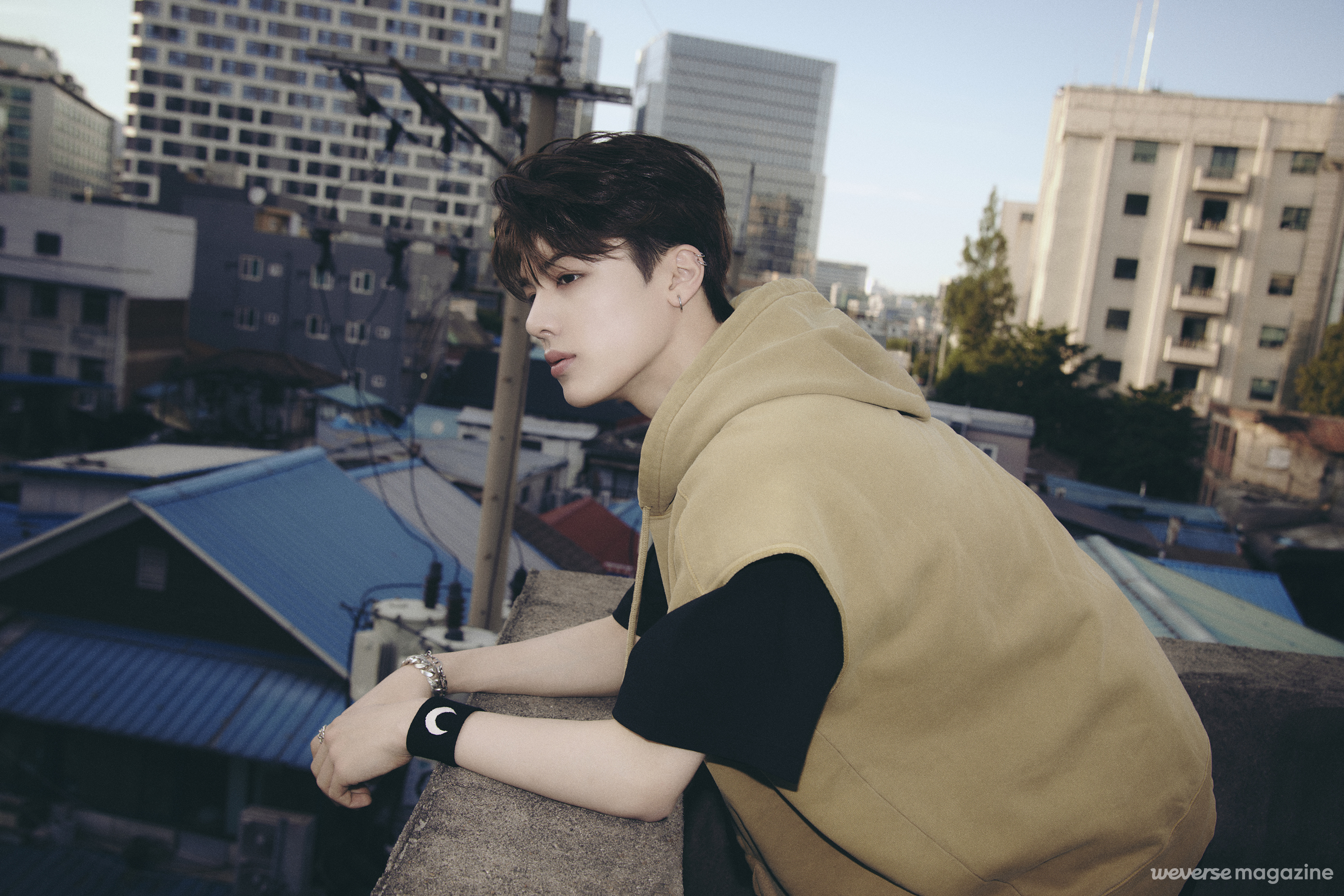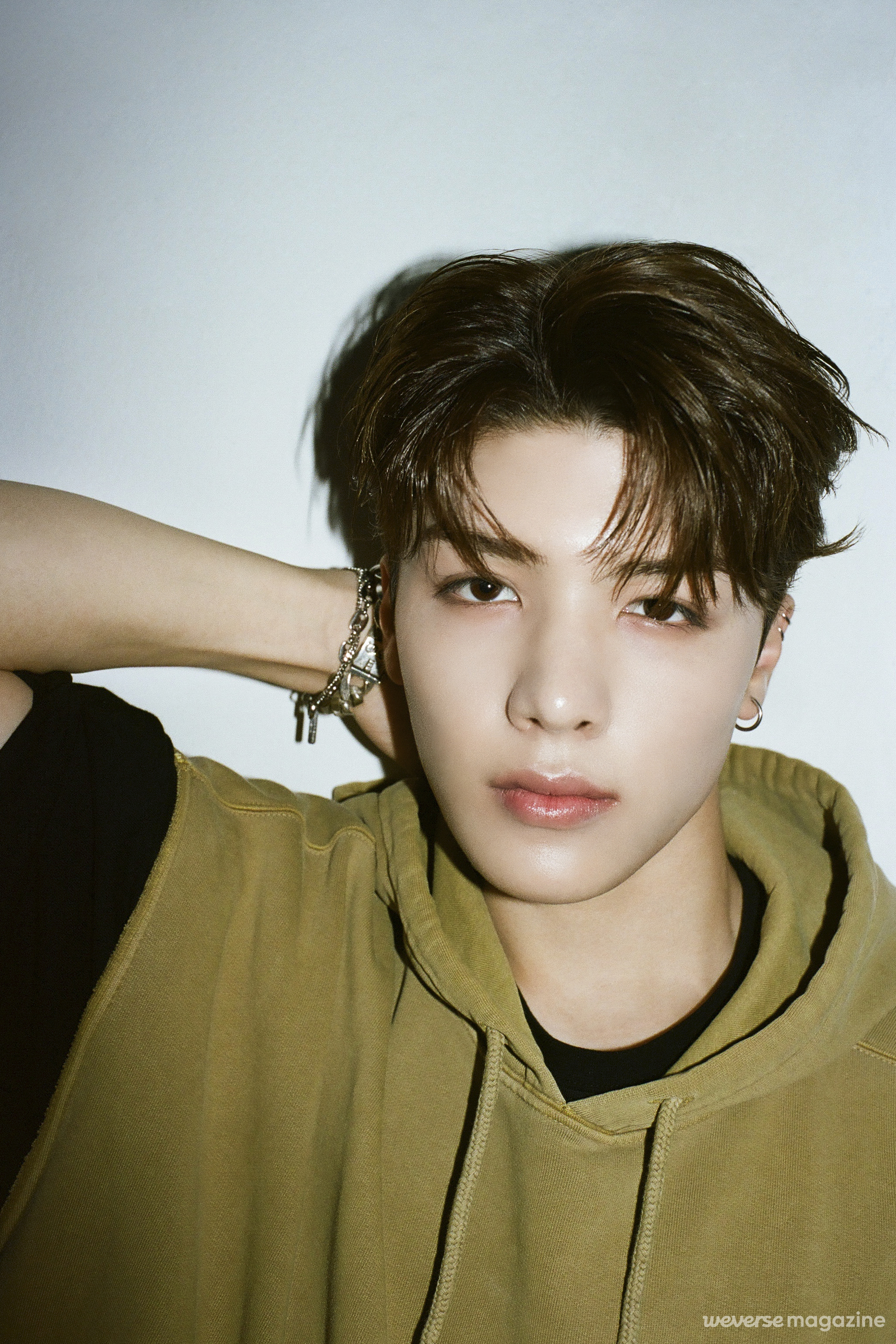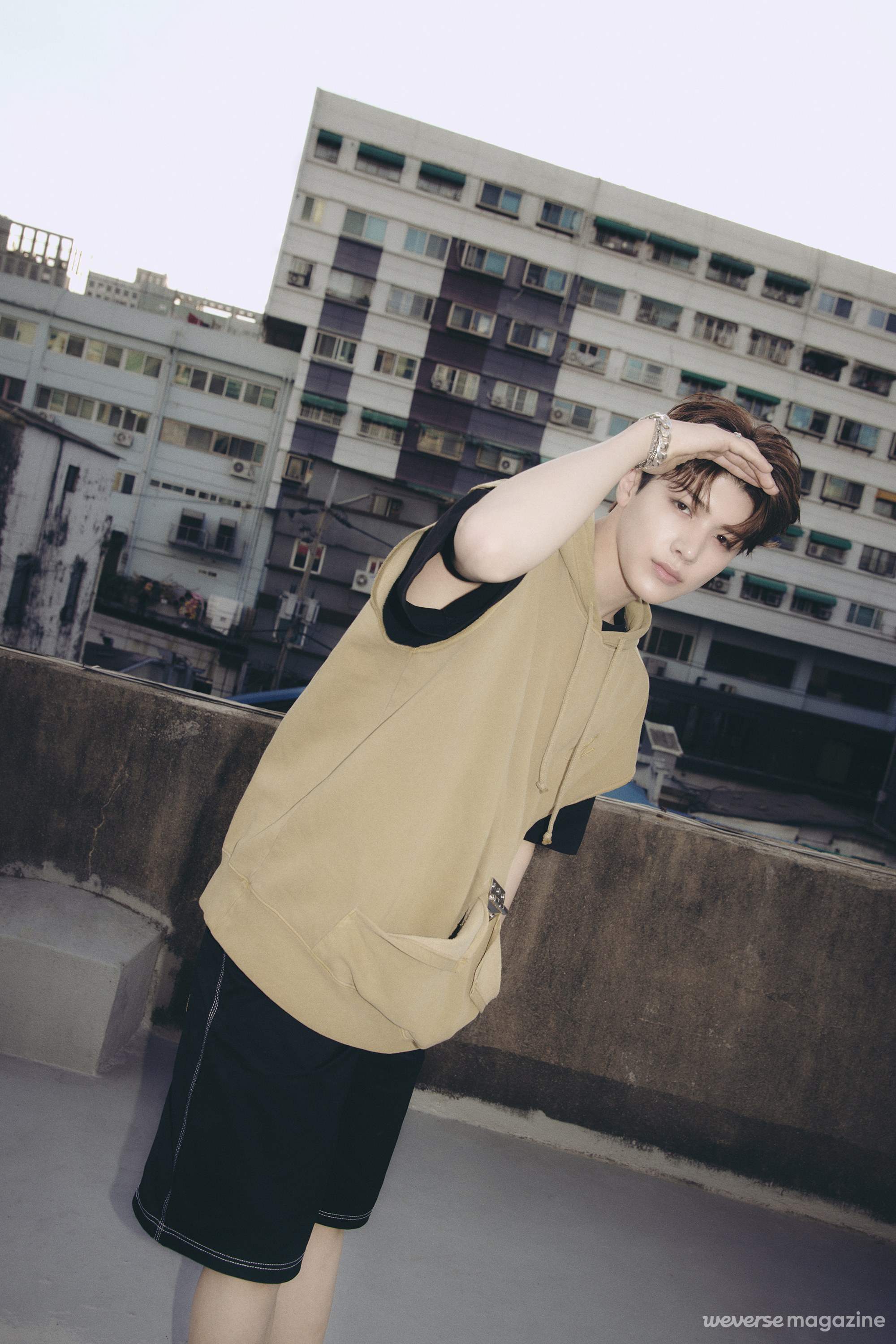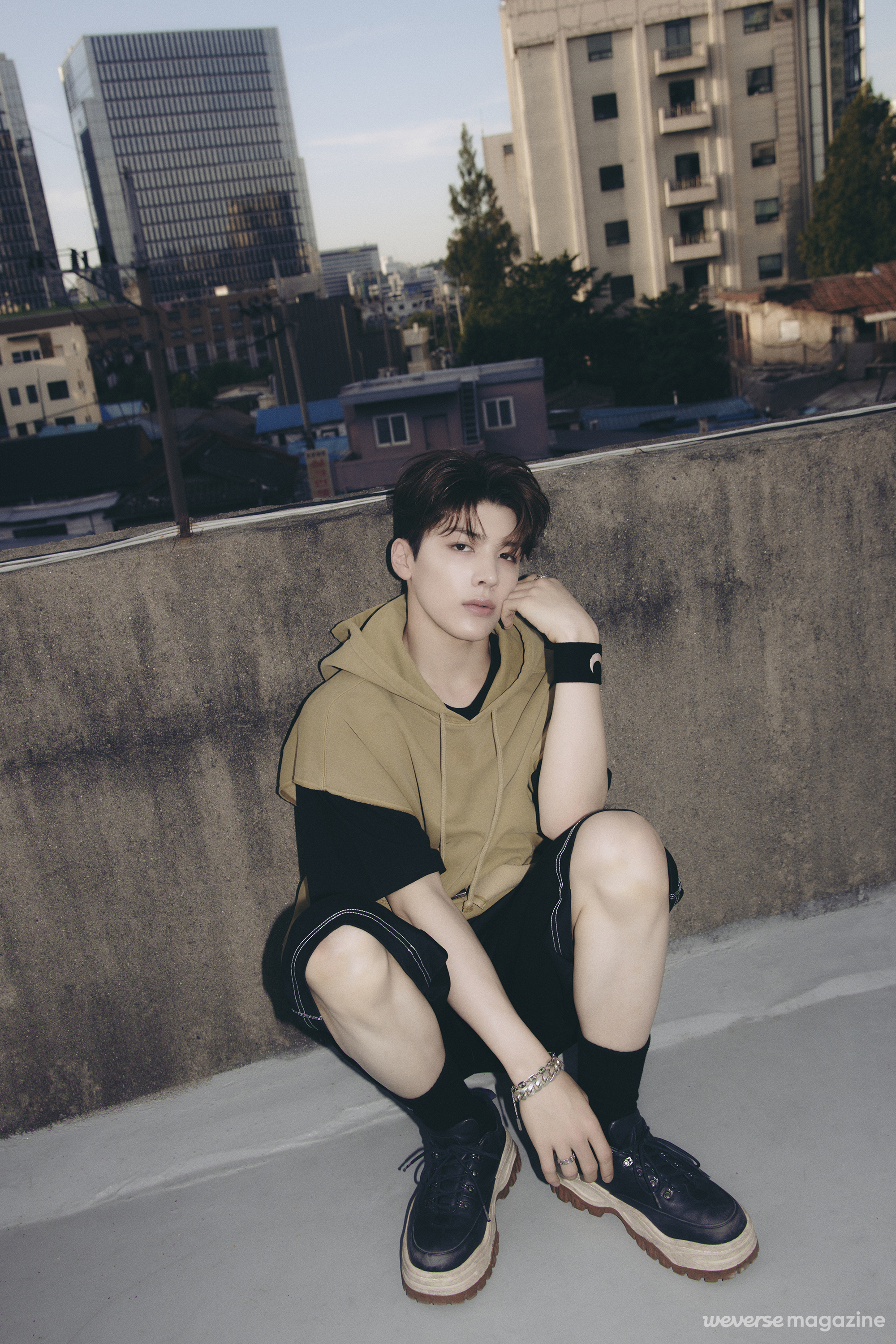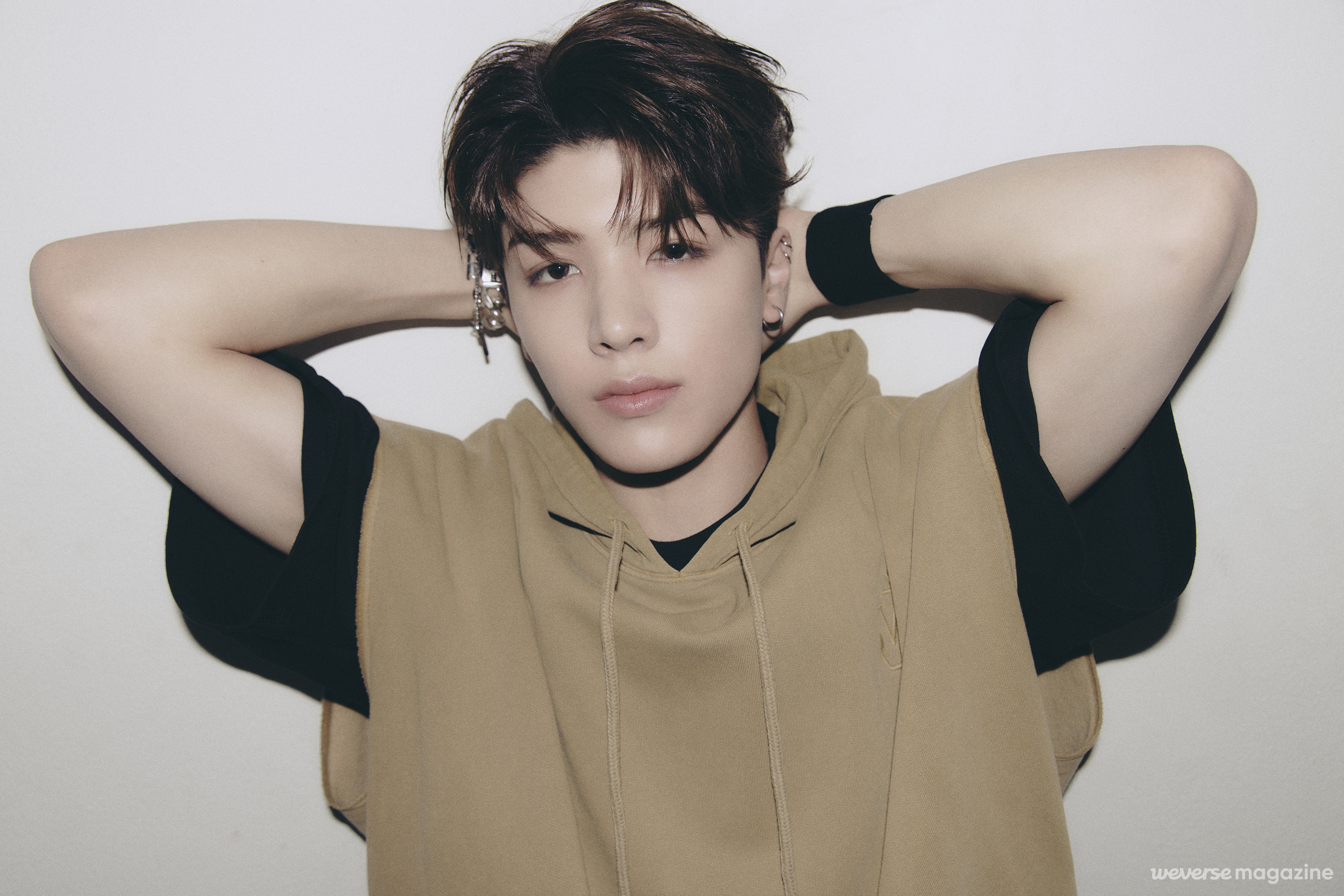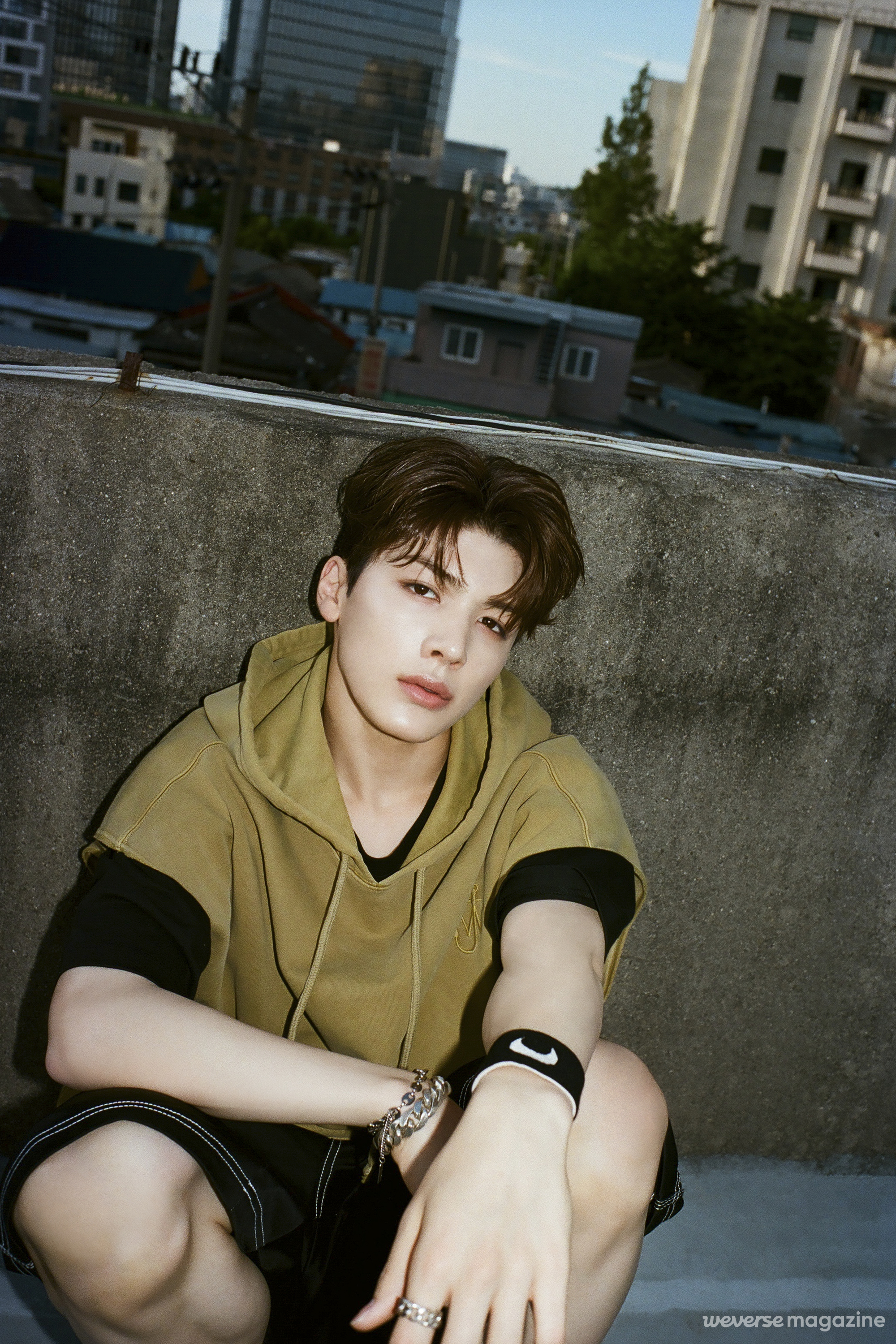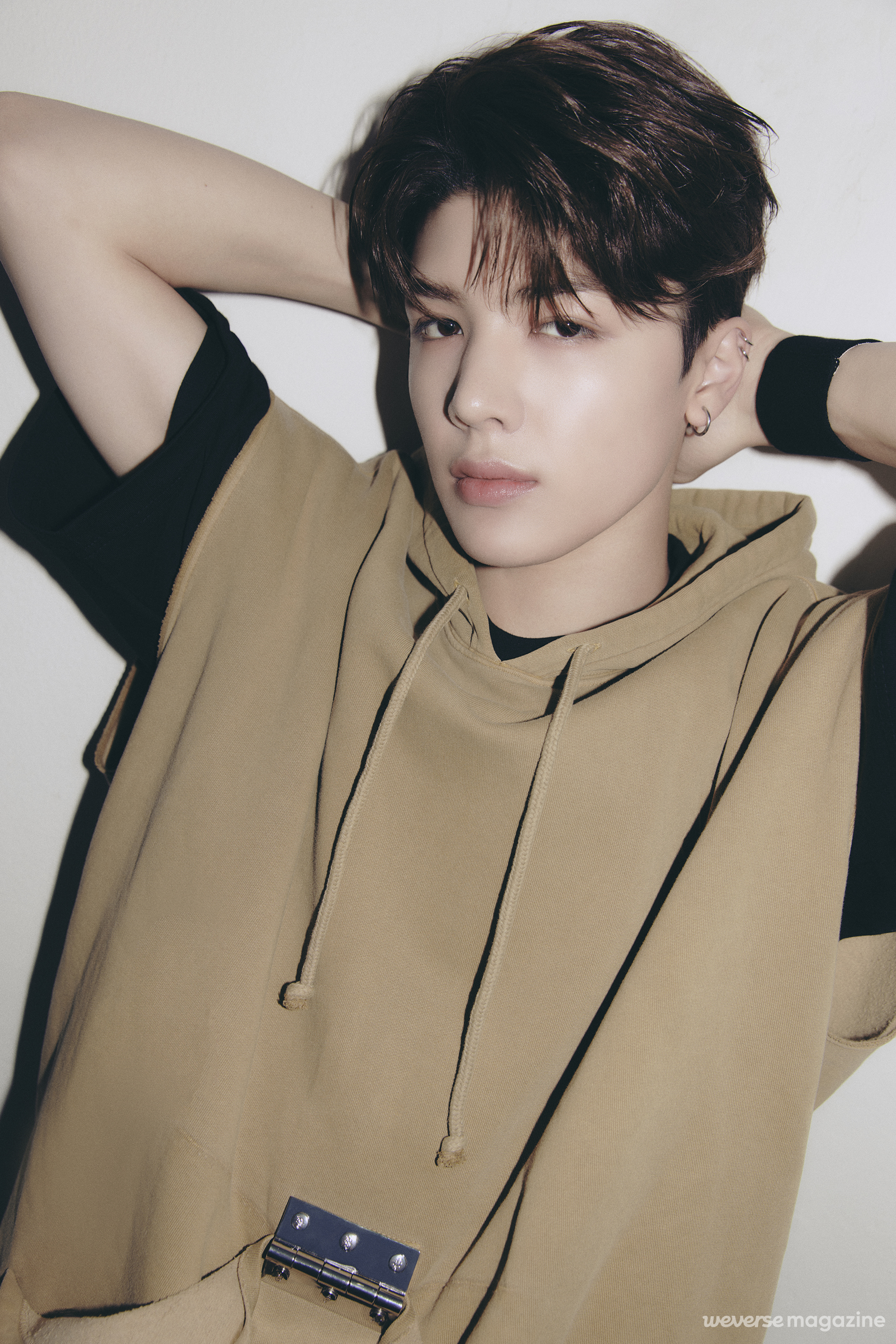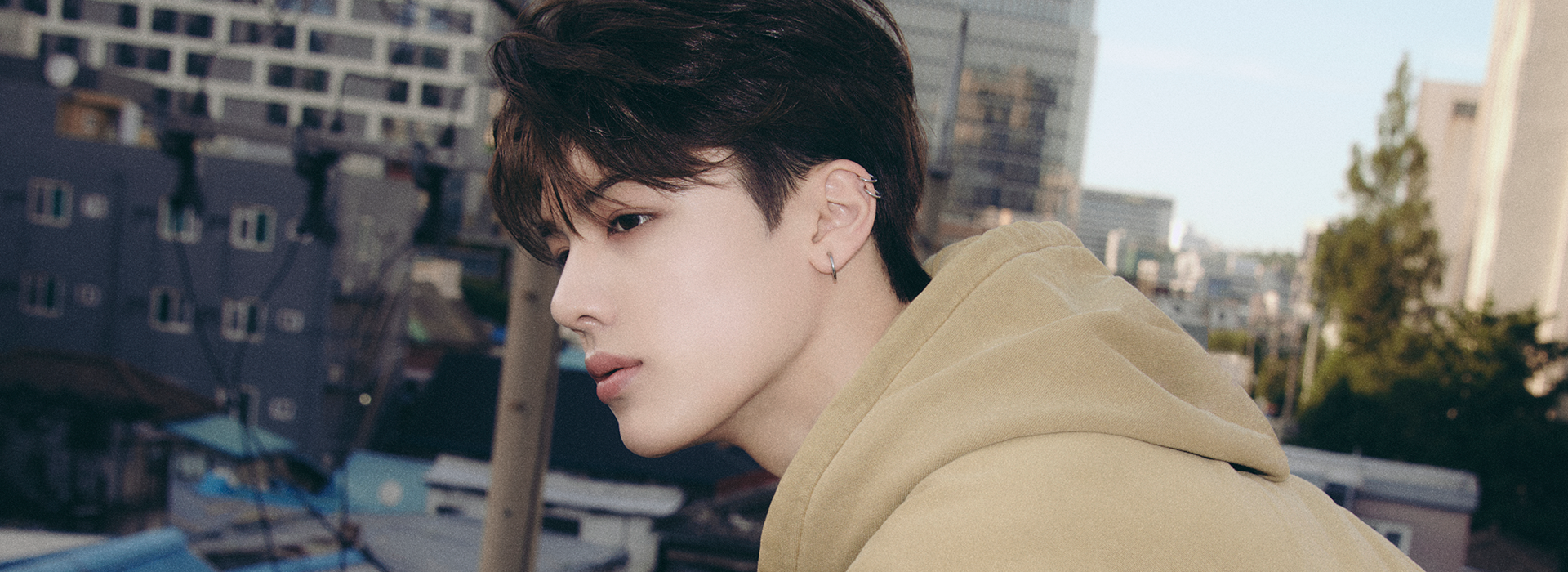
INTERVIEW
MAKI: “LUNÉ is a huge push behind my growth”
&TEAM First Howling: WE comeback interview
2023.07.04
The boy with countless dreams finally found the right path for him—and he’s racing down it with eight other group members.
You use a lot of different languages when you’re on Weverse. You’re fluent in English, Japanese, German and Korean, but you’ve also used Spanish and Chinese, right?
MAKI: I probably get that from my dad. He speaks nine different languages. (laughs) I guess I’m learning so many different languages because I want to be more like him. And the biggest thing is that I want to be able to speak to LUNÉ in their own languages. It was great having a back-and-forth with fans in Korean when we did the fan signing event in Korea just recently!
You can speak English, Japanese and German thanks to your parents, but what got you interested in Korean?
MAKI: The very first Korean drama I watched was Itaewon Class. I watched it with my mom and it made me want to learn to speak Korean because it sounds so unique—in a good way. I watched the movie Parasite with the other members a little while ago, and even though we had Japanese subtitles on, I was still surprised how much Korean I could understand compared to before.
Have you learned any memorable Korean expressions recently?
MAKI: Umm … There’s, “the reason I’m here today.” I learned, for example, that I could say, “&AUDITION’s the reason I’m here today.”
That’s a great example. (laughs) I heard you watch &AUDITION - The Howling at home by yourself and you’re serious about it.
MAKI: I often rewatch &AUDITION and look at old photos and videos on my phone. I like the feeling I get from seeing how things have changed compared to now. I mostly pay attention to changes in appearances (laughs) and I think I’m a lot taller now than I was on &AUDITION. My face looks more mature somehow too. And I go back to that performance of “Sayonara Hitori” more than anything else. I like seeing how much better I am at singing and dancing now compared to back then.
It’s not an easy thing to look back on how you used to be before you were better.
MAKI: I think it’s fine as long as I’m at least a little better than I was back then. I wasn’t good back then, but everything that happened is the reason I managed to get where I am today. I wasn’t very good or knowledgeable about dance when I signed up for &AUDITION but I thought it would be okay if I showed people how I improved along the way. So I thought I should just try it out and worry about things later. And it’s funny to think about how there’s no way I ever could’ve guessed back then that one year later I’d be this cool member of &TEAM. (laughs)
I’m certain pre-2020 MAKI could never have imagined what would end up happening. (laughs) You first dreamed of becoming an idol after watching I-LAND, right?
MAKI: Actually, I had a lot of dreams when I was young, and before I saw I-LAND I was an actor and doing musicals. I had so much fun singing, dancing and acting, but I felt like something was missing. After watching I-LAND and seeing how amazing it was that people worked so hard to achieve their dreams with a group, I wanted to become an idol.
Idols and musical actors are similar in that they both perform on stage. What is it that’s different about them that filled that gap for you?
MAKI: With musicals, you have to audition every single time, and the people you’re with for each play changes every time too. But idols keep chasing their dreams with the same group members—as a team. That was the deciding factor.
It makes me think of the theme of your new album, First Howling: WE: realizing your inner voice is challenging you to try something new, and searching to find that someone who can do it with you.
MAKI: Exactly! When the album was first explained to me, I felt like its story of finding other members to have more and more people working together was connected to the storyline behind &AUDITION and &TEAM. So I thought the nine of us would be good at conveying the concept behind it. It’s something we’re uniquely qualified to do and I was excited to show off this new side of our group.
Your THIRSTY concept photo feels really different from anything else you’ve done before.
MAKI: I dyed my hair blond, for one thing! I really liked it. I wanted to take that feeling and convey a sense of running free. But there’s also a sense that the process, while fun, is also a difficult one, because you want to get there as fast as you can. So I focused on getting that feeling across. And I was just being myself for BLOOM! The concept was that we all go to a secret meeting place after school to plan a party. My idea was to be the kid who keeps messing around and getting in the way of the older kids while they’re preparing. I’m honestly already sort of a jokester so there was no acting required. (laughs) I had a really good time shooting that.
But aren’t you more the type to clean up than get in the way? (laughs) You’re the cleaning leader of &TEAM, after all.
MAKI: Cleaning leader! (laughs) We were already living together during &AUDITION and I was pretty good at cleaning then too. That must be when I got that reputation, and when &TEAM was formed and we were deciding how to keep our place clean, I put up my hand right away and said, “Should I just be the cleaning leader?” Ever since I became a trainee I had to do laundry and all my other chores for myself anyway. I learned I have to take care of my duties on my own, and if I don’t take care of what needs to be dealt with myself, nothing will ever get done.
That’s a great way to put it: “If you don’t take care of it by yourself, nothing will ever get done.” Has that mindset helped you to continue to grow? You mentioned in your recent interview with MAQUIA magazine that it took an effort on your part to deal with your voice changing.
MAKI: My voice started changing when I was a trainee and I was shocked when I couldn’t sing the songs I used to be able to. It became hard to sing high notes or in falsetto with my vocal cords changing and that made me really down. Then our producer, Soma, told me, “Even if you can’t hit the high notes, you have to keep shouting them out and eventually you’ll make it happen.” So I continued to practice singing high notes in a register I could reach in a way that wouldn’t damage my vocal cords, and now I can actually hit high notes more easily than I could before my voice changed. I could feel how I was able to adjust my vocal cords better than before when recording our latest album.
Was that helpful for rapping too? Your rap on “Road Not Taken” revealed a whole new side to your vocals.
MAKI: Thank you. (laughs) My teacher told me I have a talent for rapping, actually. It’s hard to control your breathing while rapping, but I’m good at doing that while singing. I think it applies to when I’m rapping too. I was trying to sound like a bad guy when I rapped on “Road Not Taken” by rapping in a low voice. I also practiced by listening to a lot of English rap songs and rapping along because I wanted to do a good job with it. I always tell myself that, even if I’m not good at something, the experience will be helpful to me later on. That’s why I just jump into things. I think I was just born with an optimistic and chance-taking mindset. One time, when I was young, I was watching my little sister do ballet, and my mom asked me, “Do you want to do ballet too?” At first I said I didn’t want to, but the next morning I felt like I just had to try it, so I told her I would. (laughs) I don’t know why, but I thought I could do it.
Was learning ballet a valuable experience for you in the end?
MAKI: Yes. I did ballet from when I was eight until I was 13, and it helped me when I became a trainee and started learning to dance because I could already sort of do the basic turns and jumps I learned in ballet. Without that experience, I wouldn’t have been able to do anything. I can’t do ballet anymore since I stopped a long time ago but I think it helped me with the basics.
How was it learning the new choreography? It looks extremely challenging.
MAKI: They feel even harder than “Under the skin” was. (laughs) Especially “FIREWORK.” It’s so hard that when we’re about to practice it all the way through, we all clench our fists, sigh and say, “Alright, let’s do this.” That’s how much harder it is, and that’s why I was a little bit worried how well we’d be able to do it. But I just tried to have confidence. Seeing established artists perform made me realize the most important thing when you’re on stage is to have confidence. I think it’s cool when an artist can make a mistake and still make it look like it was on purpose. The most important thing is that the other members helped me a lot again this time, so I was able to do a good job!
What was it like practicing with the other members for the parts where timing is crucial? There’s a part in “Road Not Taken” where you jump off TAKI and K’s backs—and really high up at that.
MAKI: I’m not scared of much so I wasn’t worried about how high it was, but I couldn’t step on TAKI and K at first because I was worried they’d get hurt. But K told me not to hesitate when I jump. I remember him saying that really well. He said, “Just focus on the jump for now, and if it hurts, we can change things then,” and TAKI said, “It’s okay—you can put your weight into it.” Ever since then, I’m not scared when I do that jump. Instead, I practiced kicking off from the ground as hard as I could, landing on their backs as lightly as possible and getting off as quickly as I could. I think that helped make it less painful for them.
And you let TAKI step on your back later on, so you play both roles in one song. What’s that like?
MAKI: I mean, if you have to choose between stepping on someone or being stepped on … (laughs) When it was my turn to be stepped on, TAKI worried about hurting me too, and all the other members helped us figure it out. They gave a lot of suggestions, like, “Maybe you should turn here and run from the very end to make it hurt less.” I was really thankful they did that for me.
They’re exactly the team you were dreaming of.
MAKI: We give each other so much support. And the older members have a lot more life experience than the Maknaez [HARUA, TAKI, MAKI]. We meet a lot of experienced artists and people on staff while working, and it’s really important to have the right attitude and etiquette when we do. I’ve learned a lot from the older members since they have a very mature way of thinking. And the Maknaez are just like best friends. We have the kind of relationship where we can say anything to each other and do whatever we feel like. HARUA and I in particular have been together the whole time since we first became trainees, so I feel like we have a really a close connection, but I don’t know if he feels the same way … (laughs)
Now I’m thinking about &AUDITION when you cried and apologized to HARUA for making him uncomfortable. (laughs)
MAKI: Ah, that! (laughs) I was just trying to be casual with him but I was sorry when I realized it might have made him uncomfortable. I feel like we’ve sort of become closer since then.
It seems to me that you’re casual with the other members but you also always treat them with respect for their feelings.
MAKI: Exactly. To be honest, I care a lot about what the other members think of me. I’m just that kind of person. (laughs) I want them to be able to point to me and proudly say, “There goes our youngest member!” I hope to make them think I’ve grown a lot as we continue to work together.
What kind of person do you think you’ll be after you grow up more?
MAKI: I don’t want to be someone who isn’t me anymore. I don’t want that to change since I think I’m the person I am today because I had the freedom to express myself for exactly who I am. I want to hold onto that freedom and have a positive influence on other people—just like the people on I-LAND made me dream of becoming an idol. That’s the kind of influence I want to have, and I want to travel around the world to meet LUNÉ and enjoy our music together.
You told LUNÉ on Weverse Live that you were happy they were with you as you continue to grow. And here they are with you at the end of that growth.
MAKI: LUNÉ is a huge push behind my growth. I was actually a little nervous when we revealed the songs from our new album on our first fan tour. But having LUNÉ’s support in that place just for &TEAM and them was hugely uplifting and it made performing them really fun. I don’t think I’d be able to do everything I’m doing if it weren’t for the fans.
I guess you could say &TEAM only exists because of LUNÉ.
That Korean expression you learned would be fitting right now.
MAKI: Oh, right! LUNÉ’s the reason I’m here today. (laughs)
Credit
Article. Kim Jieun
Interview. Kim Jieun
Visual Director. Jeon Yurim
Coordinator. Lee Yejin
Visual Creative Team. Jang Yeaseul, UEDA SAEKO
Photography. LESS / Assist. Lee Sujeong, Park Sunseok, Jeon Junseo
Hair. Lim Jungho, Kim Minyoung, Kim Minwook
Makeup. Baek Hyuna, Lee Jimin
Stylist. Kim Beungkyu
Artist Protocol Team. Song Byeongcheon, SATOH MANABU, MOCHIZUKI KENTA, MATSUMOTO CHIHIRO

Weverse Magazine

MAKI:“LUNÉ们是我成长的巨大动力”
&TEAM 《First Howling:WE》回归访谈

Weverse Shop
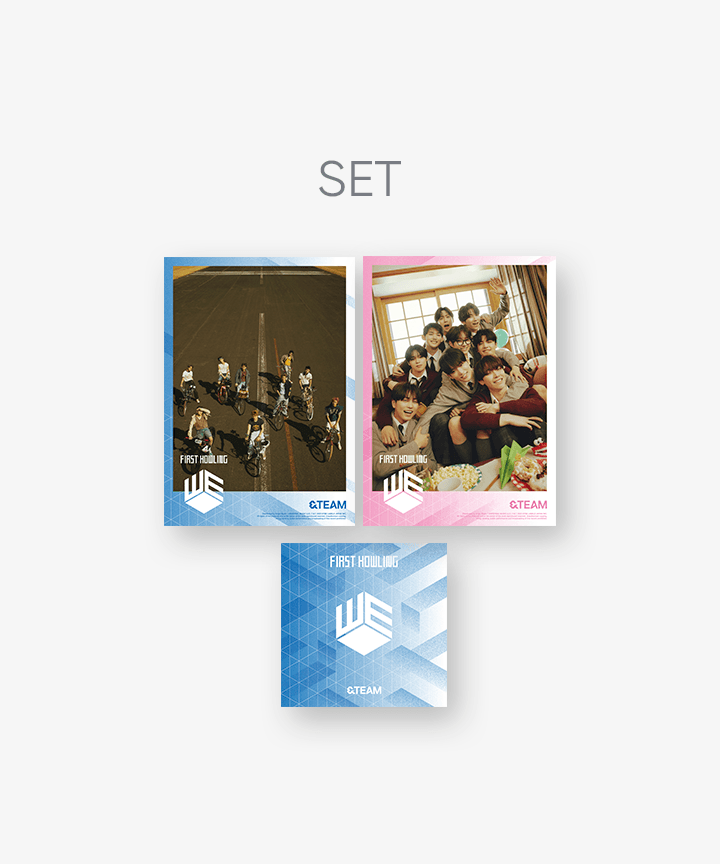
『First Howling : WE』
Copyright © Weverse Magazine. All rights reserved.
Unauthorized reproduction and distribution prohibited.
Unauthorized reproduction and distribution prohibited.
Read More
- FUMA: “I’ll never let this feeling fade”2023.06.26
